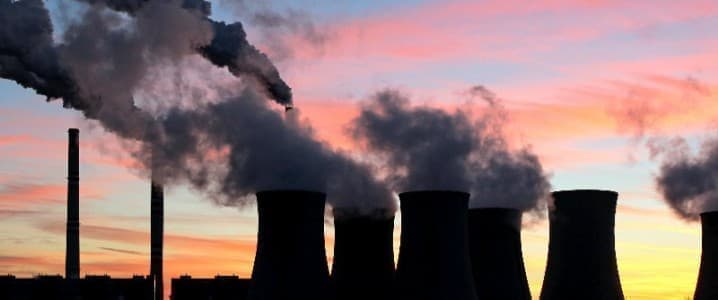Engie has a problem. Engie (pronounced “ahn-jee” in French), is a large state-controlled, French energy conglomerate. This is a long and storied corporation with antecedents dating back to the founding of the Suez Canal Co. in 1858. But in its present (Engie) manifestation it reflects the 2008 merger of the water company, Suez S.A. and the French gas company, Gaz de France and the subsequent spin off of the water business renamed Suez Environment.
The new management of the combined entity wanted a simple, peppy name. Too bad they didn’t create a simple, peppy business. Engie may not be well known in the US but it is a very large and some might say unwieldy entity with 170,000 employees, annual revenue of €72 billion, spanning five continents, and owning about 100 GW s of largely gas-fired electric power generation. On the gas side it owns an extensive gas transportation network in Europe, provide storage, distribution services, own LNG terminals and provide gas to their own considerable fleet of thermal power generation. To provide readers a sense of scale here, one of our largest US investor owned utilities is Southern Company - which also has a gas distribution business. Southern, by comparison, owns 42 GWs of power generation, employs 28,000 people across four contiguous states, and had operating revenues last year of $21.4 billion. Engie is at least two to three times larger than one of our biggest electric and gas utilities in the US.
The problem? Investors seem to hate the stock. Compared to its principal European competitors, Spain’s Iberdrola and Italy’s Enel, Engie stock sells at 89% of its book value vs an average of 215% for the rivals. (Southern Company’s price to book is about 240%.) Its enterprise value (total of debt plus market value of stock) is 6.8 times EBITDA compared to an average of 10.2 times for its industry rivals. (Southern Company’s stock trades over 13 times ebitda). Clearly Engie’s stock price is heavily discounted versus its peers. So heavily discounted in fact that if the market accorded Engie an industry average equity valuation the stock price would double. Said differently the value of the entire enterprise might be 50% higher, a shortfall that amounts to €30 billion.
But what accounts for a discount this steep? For one thing the market does not typically reward extremely complicated companies engaged in numerous lines of business. They are too hard to follow for industry analysts who may cover anywhere from 25 to 50 companies. In a way, highly diverse operations spanning the globe increase the probability that overall financial results will struggle to exceed the growth of the broader economy. And if diverse and complicated companies are mere proxies for their respective economies, why bother with the extra effort? It is simpler to buy the respective country's stock indexes.
What to do? The new management, led by CEO Catherine MacGregor, has launched a drive to restructure this company into four key lines of business: renewable energy, energy solutions, networks, and thermal production and energy supply. The goal is to shrink the company's expansive footprint from 70 to 30 countries worldwide with a key focus on France (and Benelux countries), the US, Chile and Brazil. At the same time management’s goal is to cut €600 million of expenses in two years. And finally their goal is an “ambitious target of Net Zero Carbon by 2045 for us and our clients”.
Engie’s gas utility comprises 30-40% of its total operations. In its recent strategic refocusing, the company emphasized its commitment to renewables via significant incremental capital expenditures for solar power plus onshore and offshore wind power development. The goal is 80 MWs of renewable electricity production by 2030. As an integrated natural gas company, it is not entirely surprising that Engie’s management believes that “gas is an essential lever in the energy transition.” In this regard the company is focused on natural gas in connection with renewable hydrogen production with a target of 4 GWs by 2030. This target also includes up to 100 filling stations dedicated to “hydrogen mobility”. Engie is advocating for a natural-gas-transition-to -renewables strategy in electric generation because it still has so much invested in non-renewable power generation stations.
In short, Engie’s strategic dilemma is similar to that of US-based utilities and electric power generators. They retain a considerable investment in legacy power generation assets they would prefer not to write off prematurely to the detriment of future financial results. But coming to the wind and solar “party” in power generation in 2021 means they are a little late in acknowledging the preeminent role of renewables in the future power generation business. Meanwhile the company’s gas utility assets will either have to risk being “stranded” via mass electrification of the economy or will have to convert from natural gas to something else. In this respect we have to wonder if the stock market simply wrote off one third of Engie’s valuation, the gas business, and that accounts for the bulk of the discount in equity valuation. Or it is possible that the market is also ascribing lower earned return potential on this considerable incremental capital expenditures for renewables as well? A sort of double whammy as the market discounts legacy assets while assuming subpar returns on near term renewable investments.
Overall given its scope and scale we have little doubt that Engie has the expertise and resources to transform itself. However the company’s stock price discount may suggest market skepticism about the current pace of change.
By Leonard Hyman and William Tilles for Oilprice.com
More Top Reads From Oilprice.com:
- Record-Breaking Energy Prices Could Soar Even Higher In Europe
- Auto Giants Slash Production As Chip Shortage Worsens
- Hurricanes Raise Risk Of Oil Spills In Gulf Of Mexico


















